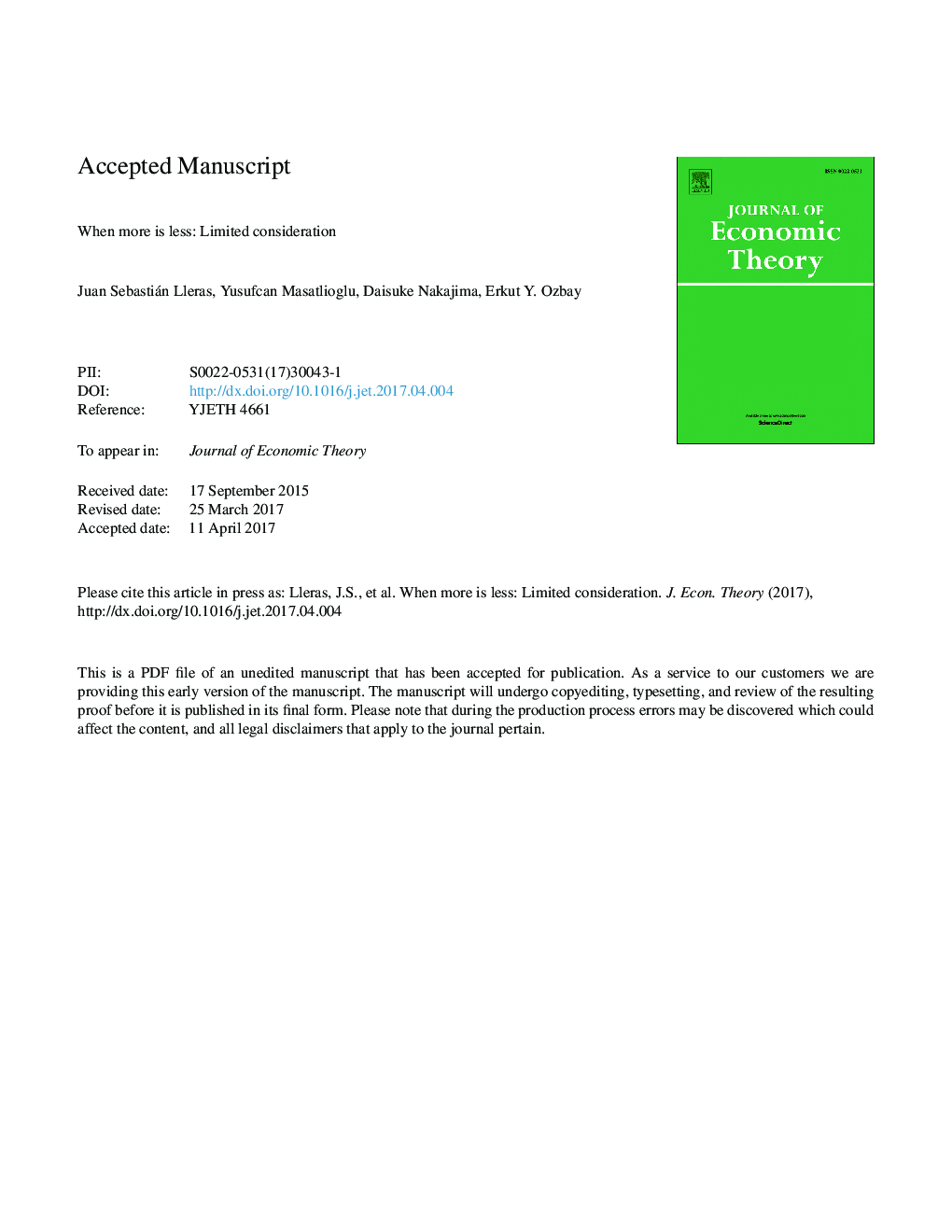| Article ID | Journal | Published Year | Pages | File Type |
|---|---|---|---|---|
| 5100074 | Journal of Economic Theory | 2017 | 23 Pages |
Abstract
There is well-established evidence that decision makers consistently fail to consider all available options. Instead, they restrict attention to only a subset of alternatives and then undertake a more detailed analysis of this reduced set. This systematic lack of consideration of available options can lead to a “more is less” effect, where excess of options can be welfare-reducing for a decision-maker (DM). Building on this idea, we model individuals who might pay attention to only a subset of the choice problem presented to them. Within this smaller set, a DM is rational in the standard sense, and she chooses the maximal element with respect to her preference. We provide a choice theoretical foundation for our model. In addition, we show which alternatives are revealed preferred to which and discuss welfare implications.
Related Topics
Social Sciences and Humanities
Economics, Econometrics and Finance
Economics and Econometrics
Authors
Juan Sebastián Lleras, Yusufcan Masatlioglu, Daisuke Nakajima, Erkut Y. Ozbay,
